A common question regarding dog foods is ‘What are the types of food dogs can or cannot eat?’ There are some >toxic foods for dogs that they should always avoid. Healthy dog food is essential for maintaining the overall well-being and longevity of our beloved canine companions.
It should provide the necessary nutrients to support their growth, energy levels, and immune system. A high-quality dog food should contain a balance of proteins, fats, carbohydrates, vitamins, and minerals.
Additionally, healthy dog food should be free from artificial additives, colors, and preservatives, as these can be harmful to dogs’ health in the long run.
Another vital aspect of healthy food for dogs is appropriate portion control. Obesity is a significant health concern for dogs, as it can lead to joint problems, diabetes, and other serious conditions.
1.Cooked lean meats (chicken, turkey, beef) without seasoning or bones
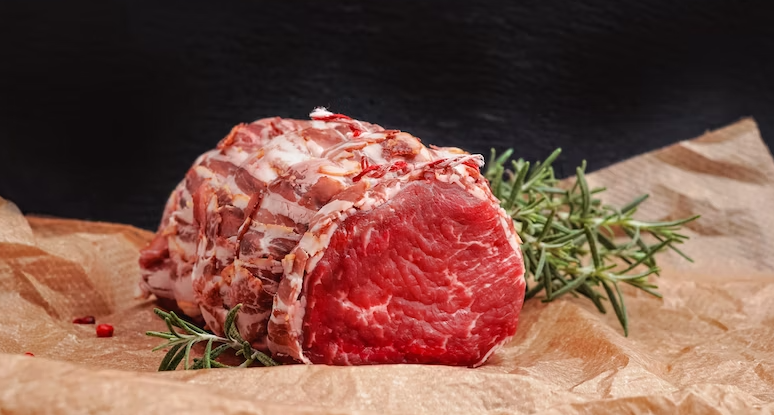
Lean meats are rich in high-quality protein, which is essential for muscle development, repair, and overall health. They are easily digestible and provide important amino acids that contribute to your dog’s well-being.
How it is beneficial
- Rich in protein
- Amino acids
- Vitamins B12 and B6
- Iron
- Zinc
2.Cooked fish (salmon, tuna) rich in Omega-3 fatty acids

Fish such as salmon and tuna contain Omega-3 fatty acids, which promote a healthy coat, reduce inflammation, and support the immune system. It’s a great option for dogs with skin allergies or joint issues. There are many >dog food brands that provide salmon and tuna.
How it is beneficial
- Protein
- Omega-3 fatty acids
- Vitamin D
- Selenium
3.Cooked eggs (avoid seasoning or cooking with oil)

Eggs are a nutritious source of complete protein, providing essential amino acids for muscle maintenance and repair. They also contain beneficial nutrients like vitamin A, B12, and selenium.
How it is beneficial
- Protein
- Vitamins A, B12, and D
- Iron
- Selenium
4.Plain yogurt (make sure it’s lactose-free if your dog is lactose intolerant)
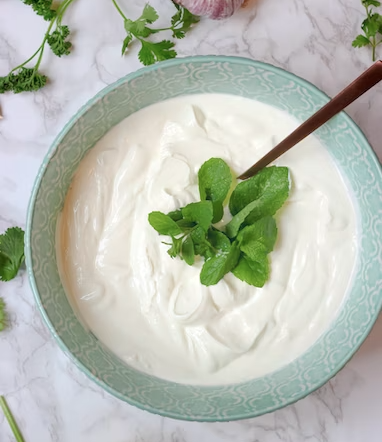
Yogurt contains probiotics that support a healthy gut flora, aiding digestion and improving the immune system. It’s a good occasional treat or topper for your dog’s regular meals.
How it is beneficial
- Contains probiotics for a healthy gut
- Calcium
- Protein
5.Pumpkin (plain, canned, and unsweetened)

Pumpkin is low in calories and high in fiber, making it beneficial for dogs with digestive issues. It can help regulate bowel movements and promote a healthy digestive system. It is one of the healthiest vegetables for dogs.
How it is beneficial
- Low in calories and high in fiber
- Pumpkin aids in digestion and supports weight management
6.Carrots (raw or cooked)

Carrots are a crunchy and nutritious treat for dogs. They are rich in beta-carotene, which converts to vitamin A and promotes good eyesight and a strong immune system.
How it is beneficial
- Vitamin A
- Beta-carotene
- Healthy eyesight
7.Sweet potatoes (cooked)
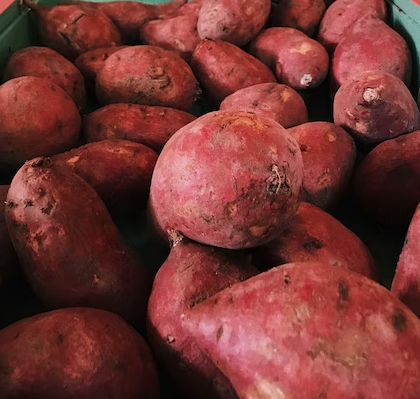
Sweet potatoes are a good source of vitamins A and C, as well as fiber and antioxidants, supporting skin health, and boosting the immune system.
How it is beneficial
- Vitamins A and C
- Fiber
- Beta-carotene
8.Apples (remove seeds and core)
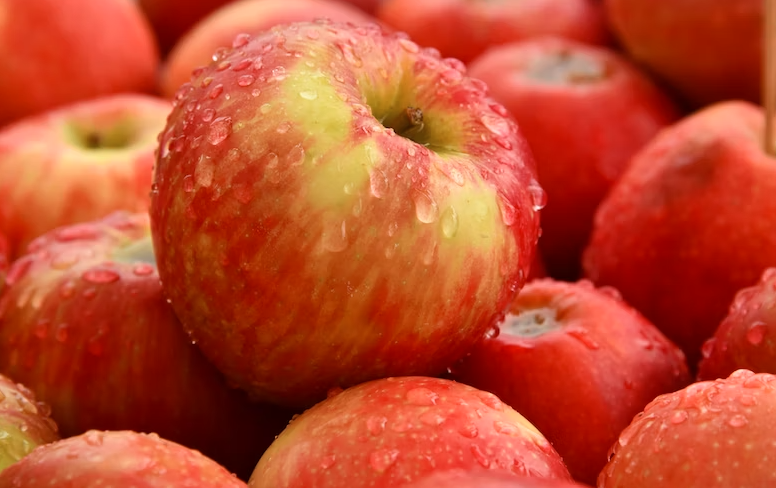
Apples are a crunchy fruit that offers vitamins and antioxidants, contributing to overall health and supporting the immune system. Just be sure to remove the seeds and core, as they contain small amounts of cyanide, which is toxic to dogs.
How it is beneficial
- Vitamins A and C
- Fiber
- Antioxidants
9.Blueberries
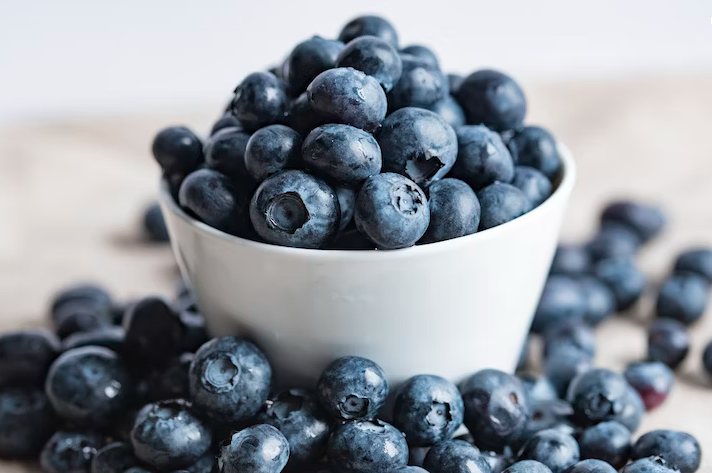
Blueberries are packed with antioxidants, vitamin C, and fiber. They are a tasty and healthy treat that supports cognitive function and benefits the heart.
How it is beneficial
- Antioxidants
- Vitamins C and K
- Fiber
10.Rice (plain, cooked)
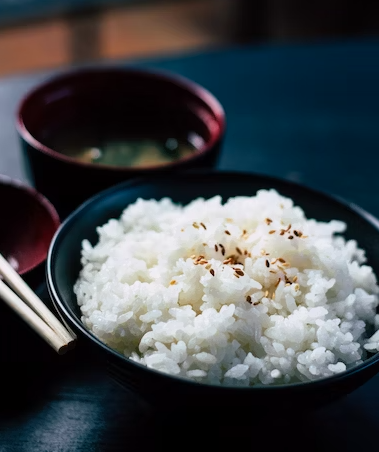
Plain-cooked rice can be a good source of easily digestible carbohydrates, providing energy for active dogs. Brown rice is also rich in fiber, which helps regulate digestion. Such >homemade food for dogs has always been good for the pets.
How it is beneficial
- Carbohydrates for energy
- Manganese
- Selenium.
11.Oatmeal (cooked)
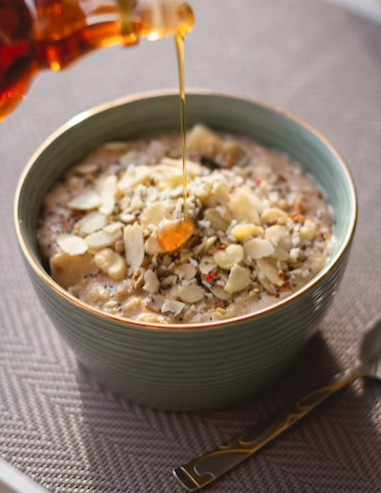
Oatmeal is another source of easily digestible carbohydrates and is often used for dogs with sensitive stomachs or dietary sensitivities. It’s a good source of fiber, which aids in digestion.
How it is beneficial
- Fiber for digestive health
- Complex carbohydrates
12.Green beans (cooked or raw)
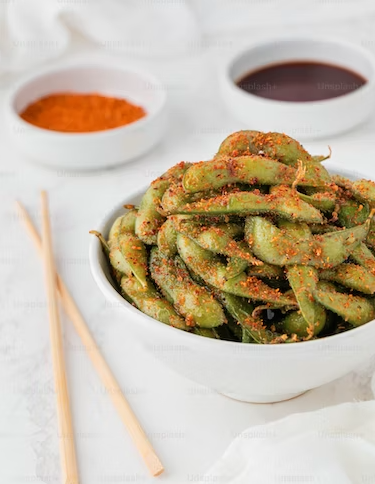
Green beans are a low-calorie vegetable option that provides vitamins and minerals. They can be used as a treat or added to your dog’s regular meals.
How it is beneficial
- Fiber
- Vitamins K and C
13.Peas (cooked or raw)
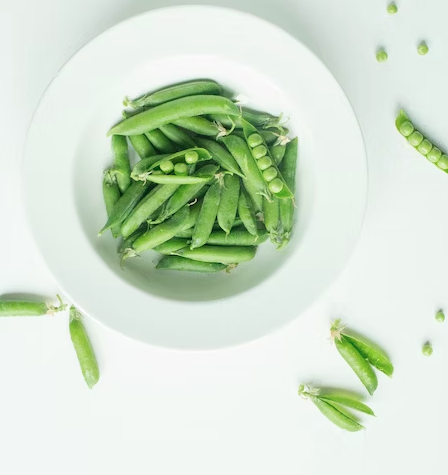
Peas are a good source of nutrients, including vitamins A, B, and K, as well as minerals like iron. They contribute to your dog’s overall well-being.
How it is beneficial
- Protein
- Vitamins A, B, and K,
- Iron
14.Broccoli (cooked)

Broccoli contains antioxidants, fiber, and essential vitamins like C and K, which support the immune system and overall health. However, be mindful of serving size, as too much broccoli can cause gas or digestive upset.
How it is beneficial
- Vitamins C and K,
- Antioxidants
15.Peanut butter (no xylitol): Are peanuts healthy for dogs?
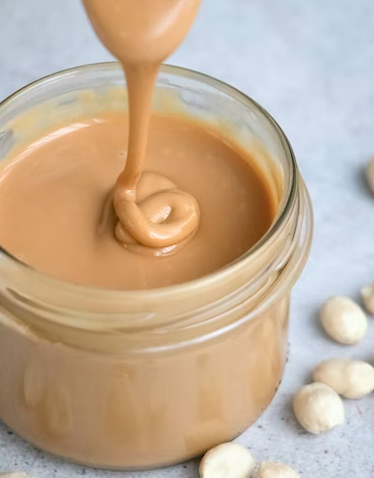
Peanut butter is a tasty treat that many dogs enjoy. It contains healthy fats, protein, and vitamin E. Just ensure the peanut butter does not contain xylitol, as it’s toxic to dogs.
How it is beneficial
- Protein
- Healthy fats
- Vitamin E
Conclusion
In conclusion, incorporating a variety of nutritious and safe human foods into your dog’s diet can offer numerous health benefits. Lean meats, fish, and eggs provide essential proteins and nutrients for muscle development and overall well-being. Yogurt and pumpkin contribute to a healthy digestive system, while carrots, sweet potatoes, and apples supply vitamins and antioxidants for improved eyesight and a stronger immune system. Blueberries are a tasty way to boost cognitive function and heart health.
Additionally, rice and oatmeal provide energy and aid in digestion, while green beans and peas offer essential vitamins and minerals. However, it is crucial to feed these foods in moderation and avoid toxic ingredients like xylitol.
The post >The 15 Best and Healthiest Foods You Can Give to Your Furry Friend appeared first on >.
Nisha Patel
I'm Nisha, a passionate pet enthusiast who love to share my knowledge with all pet owners. With years of firsthand experience and a deep love for animals, I bring a unique perspective to the world of pet care.
 (1).png)


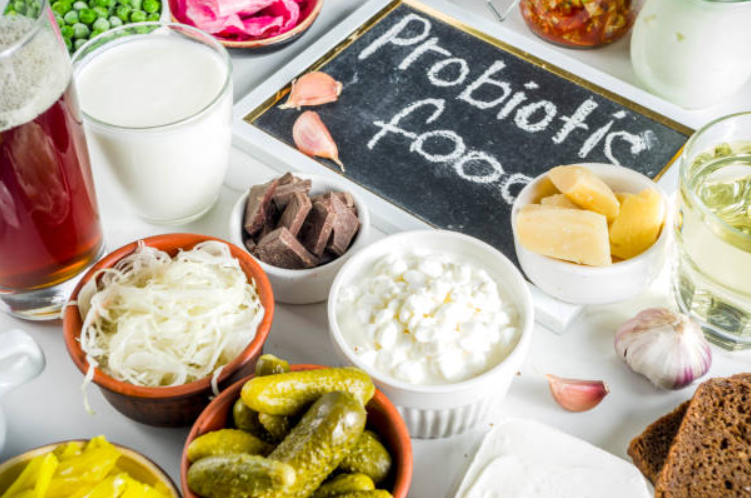
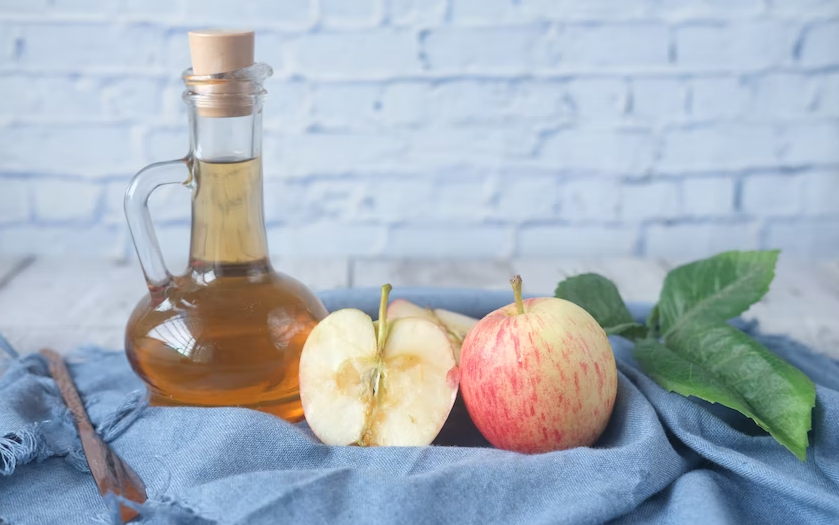
Leave a comment!
Your email address will not be published. Required fields are marked*